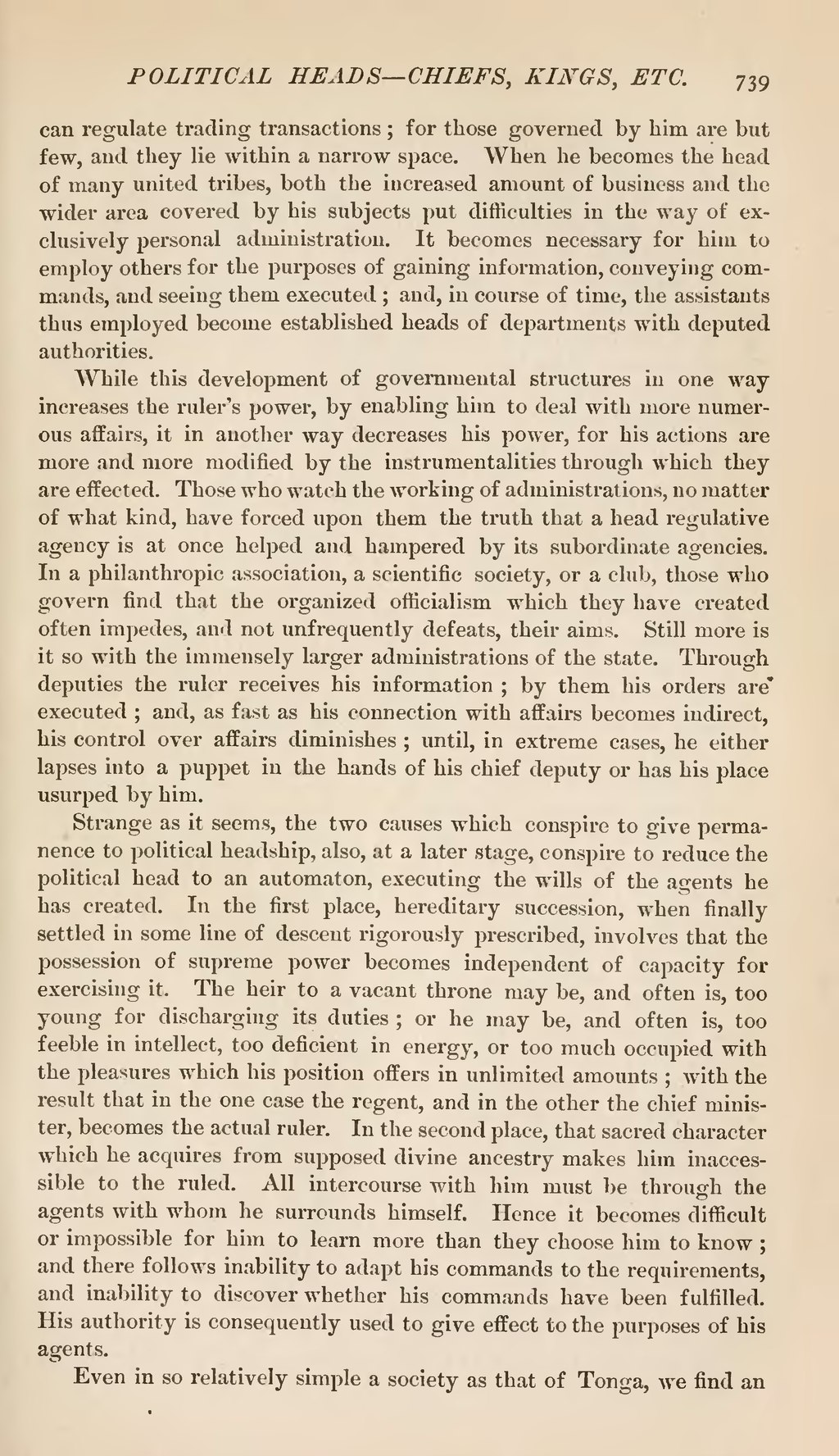can regulate trading transactions; for those governed by him are but few, and they lie within a narrow space. When he becomes the head of many united tribes, both the increased amount of business and the wider area covered by his subjects put difficulties in the way of exclusively personal administration. It becomes necessary for him to employ others for the purposes of gaining information, conveying commands, and seeing them executed; and, in course of time, the assistants thus employed become established heads of departments with deputed authorities.
While this development of governmental structures in one way increases the ruler's power, by enabling him to deal with more numerous affairs, it in another way decreases his power, for his actions are more and more modified by the instrumentalities through which they are effected. Those who watch the working of administrations, no matter of what kind, have forced upon them the truth that a head regulative agency is at once helped and hampered by its subordinate agencies. In a philanthropic association, a scientific society, or a club, those who govern find that the organized officialism which they have created often impedes, and not unfrequently defeats, their aims. Still more is it so with the immensely larger administrations of the state. Through deputies the ruler receives his information; by them his orders are' executed; and, as fast as his connection with affairs becomes indirect, his control over affairs diminishes; until, in extreme cases, he either lapses into a puppet in the hands of his chief deputy or has his place usurped by him.
Strange as it seems, the two causes which conspire to give permanence to political headship, also, at a later stage, conspire to reduce the political head to an automaton, executing the wills of the agents he has created. In the first place, hereditary succession, when finally settled in some line of descent rigorously prescribed, involves that the possession of supreme power becomes independent of capacity for exercising it. The heir to a vacant throne may be, and often is, too young for discharging its duties; or he may be, and often is, too feeble in intellect, too deficient in energy, or too much occupied with the pleasures which his position offers in unlimited amounts; with the result that in the one case the regent, and in the other the chief minister, becomes the actual ruler. In the second place, that sacred character which he acquires from supposed divine ancestry makes him inaccessible to the ruled. All intercourse with him must be through the agents with whom he surrounds himself. Hence it becomes difficult or impossible for him to learn more than they choose him to know; and there follows inability to adapt his commands to the requirements, and inability to discover whether his commands have been fulfilled. His authority is consequently used to give effect to the purposes of his agents.
Even in so relatively simple a society as that of Tonga, we find an
